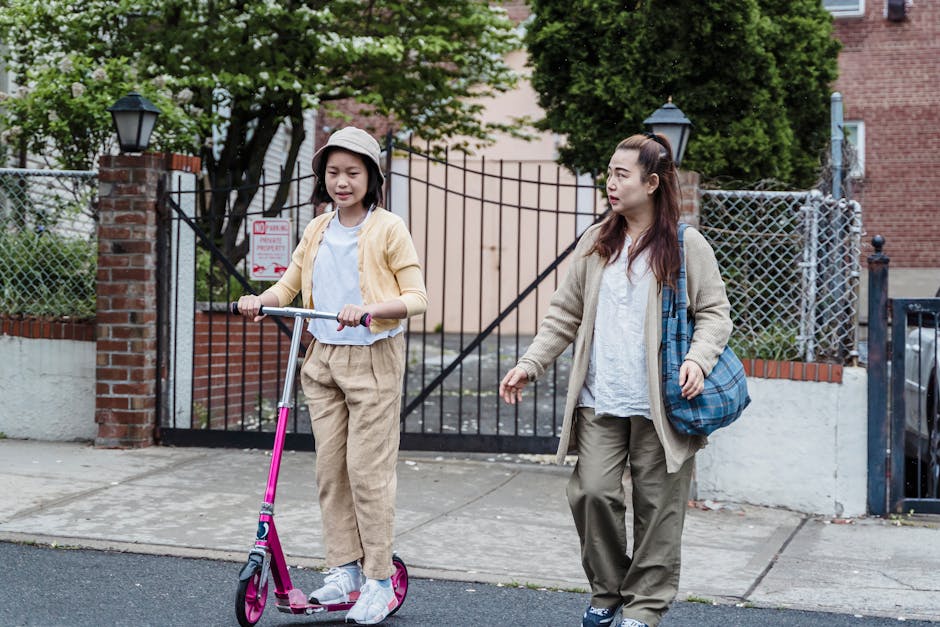TLDR
Find a safe, family-friendly neighborhood with strong schools, build community support, and regularly assess your environment to support your co-parenting and stability goals.
Define Your Family’s Emotional-Safety Checklist
Start by listing your non-negotiables:
- Violent‑crime rate below 3 per 1,000 residents (use FBI’s Crime Data Explorer).
- Elementary schools rated 8+/10 (check Realtor.com).
Map daily routines—morning walks to Mary Munford Elementary or picnics in Freedom Park—and seek safe sidewalks and family-friendly activity.

Look for places where neighbors greet each other—areas like Bellevue and Stratford Hills—and where kids laugh at Chimborazo Park. This aligns with Virginia’s custody standard § 20‑107.2, since courts weigh emotional stability and safety as part of a child’s best interests.
Why these criteria matter
Homes in safer areas with strong school ratings tend to hold value better and offer more peer support for both parents and children.
Scout and Observe Neighborhood Dynamics
Combine online filters with on-the-ground visits:
- Search Zillow/Redfin tags “family-friendly” and “social spaces,” then check Facebook and Nextdoor for block parties and PTA updates.
- Visit during school drop-off or pickup. Chat with single parents at Lamplighter or Perk! Café and scan library event boards.
Neighborhoods such as The Fan or Westover Hills host quarterly family festivals—these areas see up to 25% higher resident support in the first year.
Sample visit checklist
- Note playground conditions and shade coverage.
- Talk to at least two families about their experiences.
- Track event frequency on community calendars.
Leverage Local Nonprofits and Stability Programs
Strengthen your custody position by showing community involvement:
- Enroll in co‑parenting classes at Greater Richmond YWCA or Crossover Ministries (§ 20‑107.2 compliance).
- Join “Richmond Blended Families” on Meetup for peer support and resilience tips.
- Volunteer or sign kids up for youth leagues and after‑school programs.

Build a Resilient Support Circle
Tap neighborhood networks for practical help and friendships:
- Offer or request after‑school pickups on Nextdoor to join local co‑ops.
- Introduce yourself at block parties and PTA meetings—apply Brené Brown’s vulnerability strategies.
- Engage professionals: therapists, school counselors, parenting coaches.
Sample introduction script
“Hi, I’m [Name]. I’m new to the neighborhood and co‑parenting two kids. Would love to know your favorite local spots.”
Regularly Review and Pivot When Needed
Quarterly, revisit your safety metrics and community involvement:
- Check 2‑1‑1 Virginia for updated resources and compare crime stats.
- Drive along Monument Avenue with your kids and ask how they feel—modeled on community listening techniques.
- If priorities change, explore nearby enclaves with emerging family services.
Consistent participation in child‑ or parent‑focused activities provides a living record of your commitment to stability and safety for legal review.
- § 20‑107.2
- Virginia code section on custody factors, emphasizing emotional stability and child’s best interests.
- § 20‑108.1
- Virginia code section allowing modification of custody or support orders based on significant life changes.
co-parenting, shared custody, emotional stability, child safety, family support, community involvement, neighborhood safety, local nonprofits, parenting resources, support networks, resilience, legal custody, child well-being, stability strategies, family-friendly neighborhoods, divorce support, co-parenting classes, support circles, community engagement, safety checklist, legal standards, custody review, living with a new partner, post-divorce parenting, long-term marriage, child advocacy, neighborhood dynamics, family activities